
Making the Case for a Multistakeholder Approach
• 3 min read
Open, inclusive, and bottom-up may seem natural to those of us in the Internet technical community, but making the case for keeping Internet governance that way is an ongoing challenge.
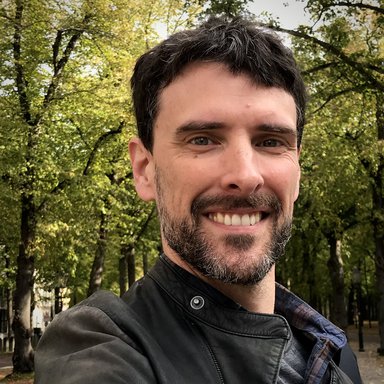
Based in Amsterdam
Articles
Likes on articles
Chris Buckridge is an independent consultant on Internet governance and digital policy. He currently serves as a member of the UN Internet Governance Forum Multistakeholder Advisory Group (IGF MAG) and the ICANN Board of Directors. From 2006-2023, he was an employee of the RIPE NCC, and prior to that of APNIC.
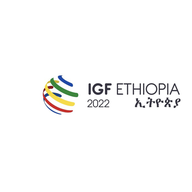
• 31 min read
It's time for another Internet Governance Forum! IGF 2022 takes place this week in hybrid format. This year's overarching theme is "Resilient Internet for a Shared Sustainable and Common Future". Check this page for regular updates from RIPE NCC staff on the issues, arguments and opinions discussed…
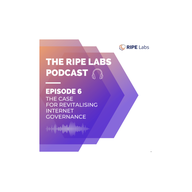
• 2 min read
Are the organisations that form the Internet governance ecosystem failing to rise to new challenges the modern Internet has created? And if so, what steps need to be taken in order to revitalise Internet governance?
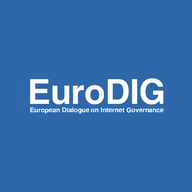
• 19 min read
EuroDIG 2022 is happening this week. With sessions looking into digital sovereignty and identity, the multistakeholder model of Internet governance, cybersecurity, and much more, RIPE NCC staff will be live-blogging the event right here on RIPE Labs. Stay tuned for updates!
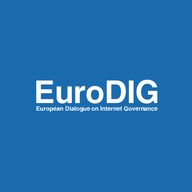
• 14 min read
The 13th edition of EuroDIG, the pan-European Internet governance event, is taking place from 28-30 June 2021 online. You can expect sessions debating ways to improve the environmental impact of ICT, discussions on recent regulatory proposals such as the NIS 2 Directive, DSA and DMA, talks on conte…

• 40 min read
The 15th annual meeting of the Internet Governance Forum (IGF) will be taking place online from 9-17 November with pre-events happening from 2-6 November. Our staff will be sharing key moments and takeaways from the sessions they attend. Check this page each day for the latest issues, arguments and…

• 31 min read
The 12th edition of EuroDIG, the pan-European Internet governance event, is taking place from 10-12 June 2020 online. You can expect sessions on technical and operational issues, security, justice, public empowerment, lessons learned from the COVID-19 pandemic and more. RIPE NCC staff at the event …

• 48 min read
The 14th annual meeting of the Internet Governance Forum (IGF) will be running from 25-29 November 2019 in Berlin. Our staff at the event will be sharing key moments and takeaways from the sessions they attend. Check this page each day for the latest issues, arguments and ideas as they arise at the…

• 19 min read
The 11th edition of EuroDIG, the pan-European Internet governance event, is taking place from 19-20 June 2019 in The Hague. You can expect sessions on technical and operational issues, cybersecurity, access and literacy, human rights, media and content, innovation and more. RIPE NCC staff at the ev…
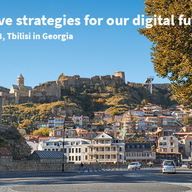
• 21 min read
The RIPE NCC is liveblogging from the European Dialogue on Internet Governance (EuroDIG) from 4-6 June. Check back for updates!

• 4 min read
It seems that the biggest obstacle to a widespread deployment of IPv6 to date is the lack of a clear business case to recover the cost of such a deployment. The fundamental problem here is that the majority of market players still view IPv6 as a product, rather than what it really is: a building bl…
Showing 10 article(s)
“As a community we know quite well what RIPE is about. People are here for a reason. I am not convinced that we need another meta discussion. Talking about principles we should remind ourselves of those we have had from the very beginning of RIPE: the "RIPE Terms of Reference" https://www.ripe.net/publications/docs/ripe-001. For a document written in 1989 this co-author believes that it holds up pretty well. Even the essence of "a globally interoperable, unfragmented Internet" is there, worded more than 30 years ago as: "RIPE promotes and coordinates interconnection of IP networks within Europe and to other continents." Personally I am happy with these principles even after more than 30 years. They guide us well. Maybe we just need to remind ourselves of these principles from time to time and interpret them in the current context. Should we agree that we need to work on revising our principles, we should start from ripe-001 and word them as much as possible in terms of what we actually *do* .”
Thank you for this, Daniel. As I wrote, there's a case to be made that this is already handled (or rather, one must first make a case that it's *not* already handled), and I take it that's your position. I've been a bit lax on making the necessary connections, but I was interested to see at RIPE 84 (the RIPE Meeting after the one at which I presented the argument above) that Jelte Jansen led a brilliant BoF session on 'Properties of Today's and Tomorrow's Internet' (https://ripe84.ripe.net/presentations/21-introduction.pdf) - I felt that the discussion there circled some of the same issues (though perhaps from a somewhat different perspective), and that may indicate a continuing desire to understand, define, or even evolve the identify and role of RIPE. Or perhaps it simply suggests a need for us to better understand our history and touchstones?
I noted in the article that a report from the Expert Group Meeting held at the beginning of April was soon to be published. It's now online, and open to public comment: https://www.intgovforum.org/en/content/report-from-expert-group-meeting
Thank you for sharing this, Nadia! It's interesting to consider the limitations imposed by an "inclusion according to stakeholder group" approach (while accepting that it may well be the best approach we've currently come up with!). Multistakeholderism is hard...
Hi Mat, Mihnea - to respond to your questions: At this point, the communication with the Dutch regulator has been of an informal nature. We plan to communicate more explicitly to the community when the official decision regarding Dutch essential services is made public. However, the key points in our communication have centred around the fact that a single root server operator, due to the distributed nature of the DNS, should not be considered an Operator of Essential Services under the NIS Directive. Regarding the RIPE NCC's position on some of these regulatory proposals, the RIPE NCC is not taking a position on whether such regulations are good or bad - our goal is to raise awareness with our community and membership of measures that could affect their operations. We believe (based on our discussions with our contacts and consulting agency in Brussels) that the current proposals would have an impact on development in these spaces, but as you note, this may well be in line with the broader preferences of the community. The key point for us is that our community (members of which are involved in the development of IoT and big data applications) be aware of this potential impact.
“Who is Vint Cert? ;-)”
Glad to see you're reading, Daniel! :) I'd just assumed Vint had his own Computer Emergency Response Team now!
Thanks for your comment, Alexander. The RIPE NCC supports a wide range of community events, including NOGs and local Internet governance events - details of this activity can be found in the Draft Activity Plan & Budget 2017 (section 3.5 - Member Outreach). These are specific, one-off events and activities, and therefore they don’t generally involve any formal agreements between us and another party. The agreements we have included on the new webpage and that I'm discussing in this article are more general, ongoing agreements of cooperation between the RIPE NCC and other organisations. I hope that distinction makes sense. In both cases, we’ve tried to make our involvement clear and transparent.
Showing 6 comment(s)